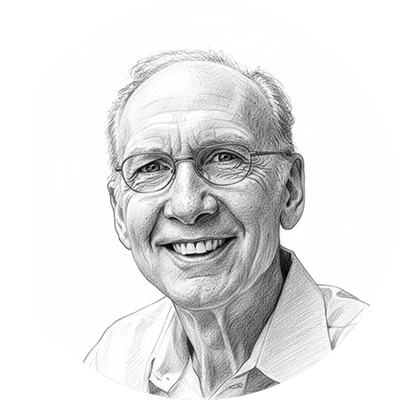What is Spiritual Psychology — and Why Do We Need It Now?
True healing begins when we stop separating mind, body, and spirit — and remember the whole human being.
by Jim Morningstar, PhD
The goal of the true spiritual psychologist is to live with purpose and to join with and inspire others to do the same.
In a classical sense, the term “spiritual psychology” is redundant. The study of the psyche — the personification of the human soul — must be spiritual, that is, “concerned with the animating principle of life.”
Since our Western scientific heritage (and traditional psychology) has assigned the mind and body to the realm of the measurable and the spirit to the domain of faith, there has been a split in our understanding and approach to these essential aspects of the human phenomenon.
The advent of holism as a philosophical tenant in the latter part of 20th century heralded a fundamental shift in consciousness, from linear or causal thinking toward systemic awareness.
We can no longer operate with a mechanical model if we are to understand the inter-dimensional realities that allow us so much freedom and expansion of our capabilities. It is critical that we have a psychology that not only admits the existence of the human spirit, but also takes it fully into account in knowing and predicting human behavior.
It is just as important for us to have spirituality that incorporates the discoveries we’ve made about the mind/body connection and how the mind and body mirror and manifest our spiritual intentions. To keep the two realms separate is to keep us split and severely limited in our understanding and treatment of the whole human being.
To blend the scientific and the spiritual can give us the best of both worlds, rather than an either/or which leaves us divided, regardless of which we choose. The truth is that whole human beings have both dimensions and to present ways they work tighter for the greatest good, i.e., leading a purposeful life, takes us out of internal conflict to inner harmony.
What do spiritual psychologists do?
A spiritual psychologist’s basic training as a therapist or counselor has been directed toward helping clients move beyond reacting as victims of life to circumstances. The scientific approach is to find behavioral and emotional patterns which lead to predictable results and to assist clients in redirecting these patterns.
To have these changes be more than situational, it is necessary to uncover core belief structures which shape clients’ realities. This, of course, is an art as well as a science, employing our intuition, empathy, and sense of timing, as well as observational skills and theoretical approaches.
The ineffable missing element, however — without which all the empathy, understanding, and technique will not suffice — is the clients’ deep sense of purpose. The ability to inspire this is perhaps the spiritual psychologist’s greatest gift.
Spiritual psychologists deal with the why to live, not just the how to live. The outmoded arbitrary division relegating the “why” to religion and the “how” to science has long since shown its ineffectiveness and subsequent moral erosion.
Theirs is not to impose answers, but to help an honest soul searching inquiry into our purpose as humans living in an evolving, diverse, sometimes scary, yet creative world.
How does a spiritual psychologist work in the community?
There are many examples of spiritual psychology being shared by holistic agencies and practitioners in the community. I can speak most accurately about the work I do as an example of aspiring to the goals of spiritual psychology.
It has been my life work, as an aspiring spiritual psychologist, to investigate all forms of conscious growth personally and professionally. I examine and experiment with what is being presented by others from ancient traditions and new discoveries.
I then retain those skills and practices which provide the most lasting, grounded results. This takes fitting appropriate techniques to the student or client at the right time to facilitate her or his empowerment.
“Spiritual” for me signifies coming from the undefined spirit or animating force of life. “Religious” signifies a particular body of teaching or dogma about the origins of existence and/or living according to a proscribed moral standard.
Some very “spiritual” (in my definition) students and clients have been atheist or agnostic. They have a profound respect for the individual point of view and the sacredness of life itself.
Many students come for personal healing (from religious or other abuse) and are at a transition point in their lives. They are looking for an environment to foster self knowledge, forgiveness, and the joy of finding a path to their true heart’s desire, rather than someone else’s formula for a happy life.
They are the people who do well with spiritual psychology. Not everyone is willing to take on this level of challenge, but those who commit themselves to a course of spiritual psychology have been almost universally grateful and permanently changed.
Personal and professional are very interrelated aspects of a holistic perspective. It is common that spiritual psychology students and/or clients make career shifts based on greater clarity and sense of personal purpose as well as confidence in achieving their life goals.
My mission has been in the Milwaukee area, where I directed the School of Integrative Psychology and the Creative Consulting and Counseling Services from 1980 to 2013. There is a very strong spiritual presence that is rooted deeply in our Heartland. The SIP is just one example of spiritual psychology in the Midwest. There are many examples throughout the country and world of such schools and counseling centers that are growing in strength. If such an orientation calls to you, then follow your heart and find the teaching and counseling that speaks to your soul.
Jim Morningstar, Ph.D. is a certified clinical psychologist, co-director of the Global Professional Breathwork Alliance, and founder of the School of Integrative Psychology and the Transformations Breathworker Training Program. He has pioneered the integration of psychotherapy with such mind-body techniques as Therapeutic BreathworkTM and bio-spiritual energetics, and has authored five books in the field of transformational psychology and breathwork. He remains active in counseling and teaching therapeutic breathwork, though he now spends more time in writing and mentoring in “semi-retirement.” His SIP courses are online and can be taken via self direction or with qualified mentors.




Absolutely this, but I wish this piece got more into what spiritual therapy looks like in practice. I think the ambiguity about it scares people away, especially those with religious trauma.